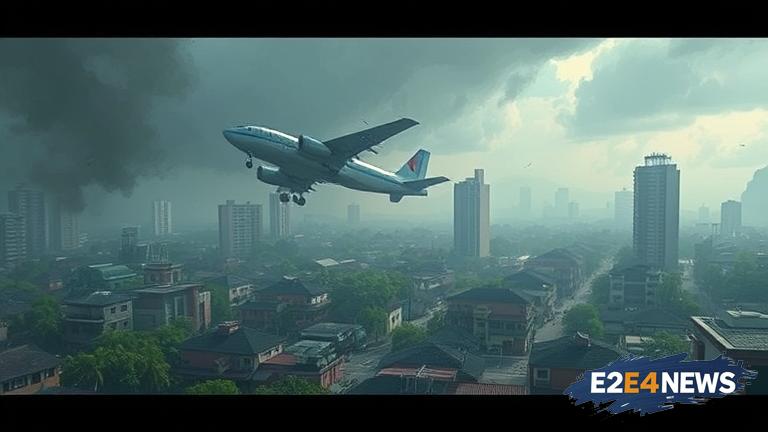Typhoon Kajiki has brought severe weather conditions to Vietnam, with the capital city of Hanoi being heavily affected. The storm made landfall on Wednesday, bringing with it strong winds and heavy rainfall. The death toll from the typhoon has been rising, with reports of at least 20 people killed and many more injured. The Vietnamese government has issued a statement confirming the deaths and warning of further flooding and landslides. The typhoon has caused widespread destruction, with homes and buildings damaged or destroyed. The city’s infrastructure has also been severely impacted, with power outages and communication disruptions reported. The Vietnamese military has been deployed to assist with rescue efforts, with troops working to evacuate people from flooded areas. The government has also set up emergency shelters for those displaced by the storm. The typhoon has had a significant impact on the city’s transportation systems, with flights and trains cancelled or delayed. The airport in Hanoi has been closed, and roads are impassable due to flooding. The storm has also caused significant damage to the city’s agricultural sector, with crops destroyed and livestock killed. The Vietnamese government has pledged to provide support to those affected by the typhoon, with food and shelter being distributed to those in need. The international community has also offered assistance, with aid pouring in from around the world. The typhoon is the latest in a series of severe weather events to affect Vietnam, which is prone to natural disasters due to its location in Southeast Asia. The country is still recovering from the effects of a previous typhoon that struck earlier this year. The government has warned that the storm is expected to continue causing damage and disruption over the coming days. The people of Hanoi are bracing themselves for further flooding and landslides, with the city’s residents advised to stay indoors and avoid travel unless absolutely necessary. The typhoon has also had a significant impact on the city’s economy, with businesses forced to close and trade disrupted. The government has pledged to do everything in its power to support those affected by the storm and to rebuild the city’s infrastructure. The typhoon is a reminder of the importance of disaster preparedness and the need for international cooperation to mitigate the effects of severe weather events. The people of Vietnam are resilient and determined to rebuild and recover from the devastating effects of Typhoon Kajiki. The government has announced plans to provide financial support to those affected by the storm, with a package of measures aimed at helping businesses and individuals to recover. The international community is also providing support, with aid agencies and non-governmental organizations working to provide assistance to those in need. The typhoon has highlighted the need for greater investment in disaster preparedness and infrastructure, with the government pledging to prioritize these areas in the coming months and years.
